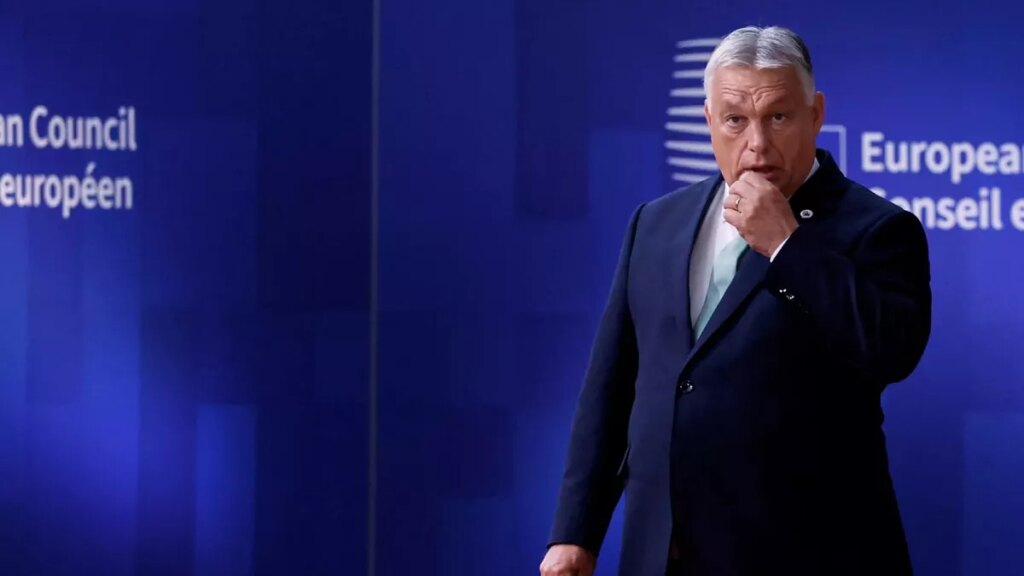In a recent interview, Hungary’s Prime Minister Viktor Orbán downplayed Ukraine’s allegations of airspace violations by Hungarian drones. His remarks come in the context of rising tensions between Hungary and Ukraine following reports of a reconnaissance drone allegedly crossing into Ukrainian territory. While Ukraine’s President Volodymyr Zelenskyy claims the drone flew over critical installations, Orbán argues that Ukraine should focus on its eastern front against Russia rather than on perceived threats from Hungary.
| Article Subheadings |
|---|
| 1) The Incident and Its Denial |
| 2) Diplomatic Tensions Between Hungary and Ukraine |
| 3) Orbán’s Perspective on Ukraine’s Sovereignty |
| 4) The Broader Implications for EU Relations |
| 5) Looking Ahead: Possible Resolutions |
The Incident and Its Denial
The backdrop for the current tensions began when President Volodymyr Zelenskyy of Ukraine claimed that a Hungarian drone violated Ukrainian airspace. According to reports, the drone flew over significant infrastructure in the Transcarpathian region, raising alarms within the Ukrainian government. In response to these allegations, Péter Szijjártó, Hungary’s Foreign Minister, swiftly rejected the claims, fueling a heated diplomatic exchange between the two nations. Orbán, although not denying the incident outright, provided a dismissive interpretation of its significance. He stated, “I believe my ministers, but let’s say it did actually fly a few meters there, so what?” His comments indicate a broader strategy of shifting international focus onto more pressing threats.
Diplomatic Tensions Between Hungary and Ukraine
The back-and-forth between Szijjártó and Andrii Sybiha, Ukraine’s Foreign Minister, has highlighted the growing animosity between the two countries. Following the drone allegations, Szijjártó accused Zelenskyy of cultivating anti-Hungarian sentiments, suggesting that such rhetoric was harmful to bilateral relations. In response, Sybiha presented a map illustrating the drone’s flight path, arguing that the Hungarian government was either blind to or willfully ignorant of the facts. This exchange reflects a significant diplomatic crisis, one that has evolved from mere verbal sparring to tangible geopolitical tension.
Orbán’s Perspective on Ukraine’s Sovereignty
During his interview, Orbán made a bold statement regarding Ukraine’s status as a sovereign nation. He asserted that Ukraine is not entirely independent and framed its geopolitical concerns as exaggerated. “Ukraine is not at war with Hungary; it is at war with Russia,” he stated, emphasizing Hungary’s role as a NATO ally rather than a threat. This assertion raises questions about the definitions of sovereignty and national borders within the context of these unresolved tensions. By insisting that Ukraine should be more focused on its eastern neighbors, Orbán aims to reframe the narrative surrounding the drone incident as a mere distraction from the greater threats posed by Russia.
The Broader Implications for EU Relations
Complicating the issue is Hungary’s opposition to Ukraine’s bid for European Union membership. Orbán has previously expressed that Ukraine’s accession would pose an economic risk for Hungary and the EU as a whole. This stance has become increasingly relevant as Ukraine seeks to navigate its wartime realities while aiming for integration into the EU frameworks. Hungary’s blocking of Ukraine’s accession talks could exacerbate the economic and political disconnect between these nations, leaving both parties vulnerable to further isolation in the international arena. As the EU continues to grapple with its own internal dynamics, Hungary’s strong diplomatic stances could influence broader discussions about security and alliance among member states.
Looking Ahead: Possible Resolutions
In light of these unfolding tensions, questions arise about potential paths to resolution. Experts suggest that both countries may benefit from engaging in direct dialogue to address these grievances. Diplomatic channels have been strained, but an open forum could facilitate better understanding. Moreover, NATO, as a common ally, might play a crucial role in mediating discussions between Hungary and Ukraine to avoid further escalation. The sentiment among officials suggests that both nations recognize the need for regional stability amid the ongoing conflict with Russia. Thus, they may be inclined to seek compromises that could mitigate current tensions and foster collaborative relations moving forward.
| No. | Key Points |
|---|---|
| 1 | Hungary’s Prime Minister downplayed allegations of drone incursions into Ukraine. |
| 2 | Diplomatic tensions mount between Ukraine and Hungary following the drone claims. |
| 3 | Orbán questioned Ukraine’s sovereignty in the context of the alleged drone incident. |
| 4 | Hungary opposes Ukraine’s European Union membership, citing economic concerns. |
| 5 | Experts suggest the need for dialogue to resolve ongoing tensions between the two nations. |
Summary
The ongoing diplomatic crisis between Hungary and Ukraine reflects deep-rooted tensions exacerbated by recent allegations of airspace violations. Prime Minister Viktor Orbán has positioned Hungary as a non-threat while critiquing Ukraine’s concerns as overstated. As both nations navigate these challenges, especially in light of Ukraine’s aspirations for EU membership, constructive dialogue remains essential for fostering regional stability and collaboration.
Frequently Asked Questions
Question: What sparked the drone controversy between Hungary and Ukraine?
The controversy began when Ukraine’s President Volodymyr Zelenskyy accused a Hungarian reconnaissance drone of violating Ukrainian airspace, prompting strong reactions from Hungarian officials.
Question: How has Hungary responded to Ukraine’s claims?
Hungarian officials, including Prime Minister Viktor Orbán and Foreign Minister Péter Szijjártó, have largely dismissed the claims, framing them as exaggerated and accusing Ukraine of anti-Hungarian sentiments.
Question: What are the potential implications for EU relations?
Hungary currently opposes Ukraine’s accession to the European Union, citing concerns over economic impacts, which could strain their relationships further and influence broader EU dynamics.
